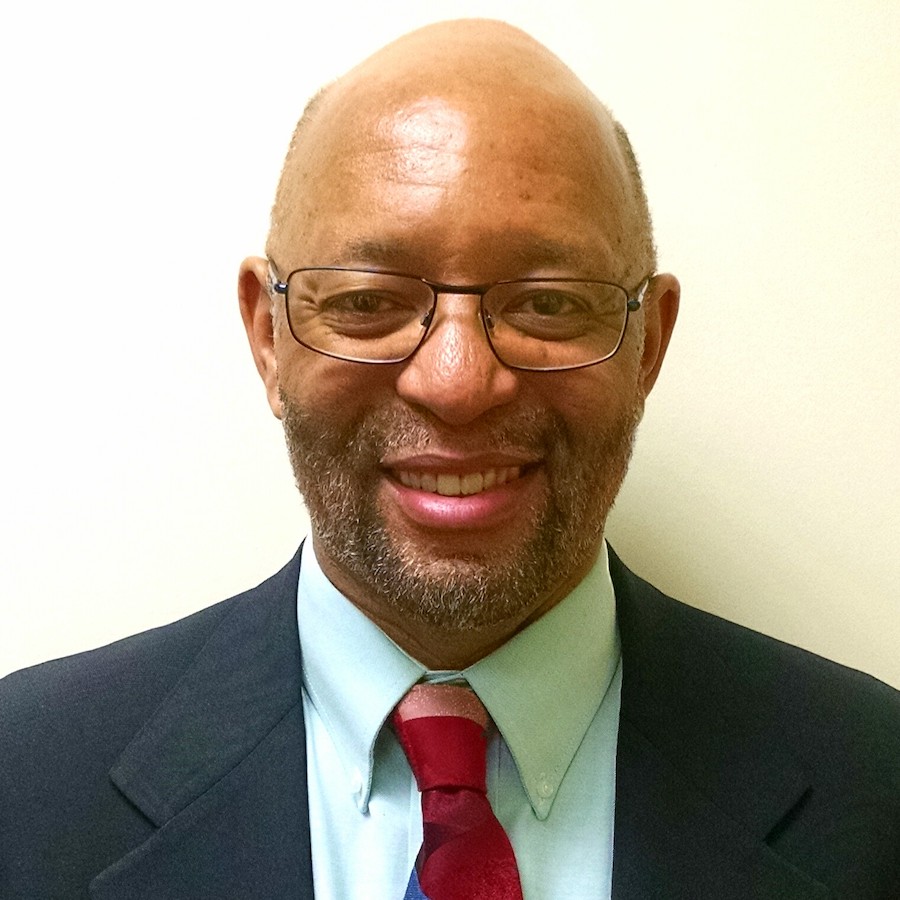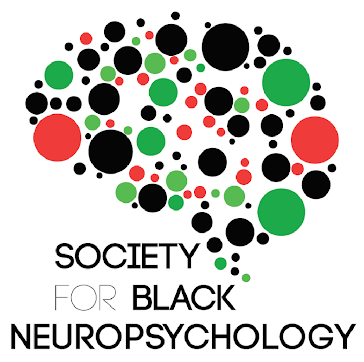
INVITED SPEAKERS AND CE PROGRAMMING
Earn 5 CE Credits!


The National Academy of Neuropsychology is approved by the American Psychological Association to sponsor continuing education for psychologists. The National Academy of Neuropsychology maintains responsibility for this program and its content.
National Academy of Neuropsychology, Inc. is recognized by the New York State Education Department’s State Board for Psychology as an approved provider of continuing education for licensed psychologists #PSY-0147.
CE Programing is live CEs only. To receive the 5 CEs, attendance is required at all four presentations (i.e., Keynote speaker, Rising Star, Special Adult/Geriatric, and Pediatric Presentation).
Disclaimer: The views and opinions expressed by guest speakers do
not necessarily reflect the views or position of the Society for Black Neuropsychology.
Anthony Stringer, PhD, ABPP-CN
Keynote Speaker

Title: A Neuropsychological Battery for Sub-Saharan Africa: Development, Validation, and Application in Africa and America
Description: This lecture will describe the development and validation of the African Neuropsychological Battery, a collection of tests of attention, perception, language, memory, and executive function that utilizes culturally and linguistically appropriate content for sub-Saharan Africa. Research on the reliability and validity of the battery will be discussed, including the factor structure of the battery, and its sensitivity and specificity for detecting stroke. Future directions for research and clinical application will be covered, along with factors to consider when developing tests for African and African immigrant populations.
Biography: Anthony Y. Stringer, Ph.D., ABPP/ABCN is a Professor of Rehabilitation Medicine at Emory University and is the Director of the Emory Division of Rehabilitation Neuropsychology. Dr. Stringer earned his doctorate at Wayne State University, completed internship at Lafayette Clinic in Detroit, MI, and did his fellowship in clinical neuropsychology at the University of Florida. He has been board certified since 2004 and was the first African American neuropsychologist to gain certification. Dr. Stringer is a past president of the American Board of Clinical Neuropsychology and leads workshops on preparing for Board Certification annually at the American Academy of Clinical Neuropsychology and National Academy of Neuropsychology conferences. He is currently the Chair of the AACN Relevance 2050 Committee and the Justice and Equity Subcommittee of the International Neuropsychological Society. Dr. Stringer has authored or edited books on neuropsychological diagnosis and the history of neuropsychology, and has published over 90 articles, abstracts, and book chapters from his research on neuropsychological syndromes and cognitive rehabilitation outcome. Dr. Stringer is the co-author of the African Neuropsychological Battery, intended to be a culturally and linguistic appropriate assessment system for sub-Saharan Africa and for African immigrants to the U.S. Dr. Stringer is a Fellow of the American Psychological Association (Division 40/Society for Clinical Neuropsychology) and of the National Academy of Neuropsychology.
Emnet Z. Gammada, PhD
Rising Star Presentation

Tittle: Approaching health disparity research through healing centered engagement.
Description: This presentation will focus on employing strength-based approaches that promote collective healing and well-being. We will introduce emerging frameworks for infusing social justice into our work for brain health equity as neuropsychologists by reviewing strategies that center collective grief, resilience, and radical hope. We will then introduce the Black Joy in caregiving project, which is a community-centered study examining Black Alzheimer’s disease and related dementia caregiver resilience.
Biography: Emnet Z. Gammada, PhD is a clinical geriatric neuropsychology fellow at the UCLA Semel Institute of Neuroscience and Human Behavior. She completed her PhD in Clinical Psychology at Queens College and The Graduate Center of the City University of New York. Her research focuses on addressing health disparity in Alzheimer’s Disease and Related Dementias.
Vonetta Dotson, PhD
Special Adult/Geriatric Neuropsychology Presentation

Title: Empowering the Black community to live a brain-healthy lifestyle
Description: There are racial disparities in age-related cognitive and mood disorders, with Black older adults being at greater risk and suffering disproportionate consequences of cognitive and mood disorders. Lifestyle interventions such as exercise and good nutrition that benefit brain health have the potential to reduce some of these health disparities. However, many in the Black community faces obstacles to implementing these healthy behaviors. This presentation will present recent data about health disparities in age-related cognitive and mood disorders, discuss lifestyle interventions for brain health, and offer suggestions for how to empower Black clients to life a brain-healthy lifestyle.
Biography: Dr. Vonetta Dotson is an Associate Professor of Psychology and Gerontology at Georgia State University, Senior Project Scientist at NASA, and Founder and President of CerebroFit Integrated Brain Health. She is a fellow of the American Psychological Association’s Society for Clinical Neuropsychology. She completed her doctoral training in clinical psychology at the University of Florida with a specialization in neuropsychology and a certificate in gerontology. She completed her postdoctoral training at the National Institute on Aging Intramural Research Program. Her research and clinical activities focus on positive and negative modifiers of brain health, including the intersection of depression with cognitive and brain aging, and the impact of health disparities on brain health. Her new new book Keep Your Wits about You: The Science of Brain Maintenance as You Age, offers research-based information on living a brain-healthy lifestyle for general audiences.
Velisa Johnson, PhD, ABPP-CN
Special Pediatric Neuropsychology Presentation

Title: Disparities and considerations in Black children with epilepsy.
Description: Approximately 20-25% of children with epilepsy meet the definition for drug-resistant epilepsy. Surgery for children with medically refractory epilepsy is underutilized, but Black patients are even less likely to receive surgery and are disproportionately burdened by epilepsy. This presentation will explore the scarce research on disparities in Black children with epilepsy, the role of neuropsychologists in mitigating inequities, and models that could potentially be extrapolated to promote equitable care. Suggestions for research and clinical implications will also be discussed.
Velisa Johnson, PhD, ABPP-CN is a licensed psychologist and board-certified clinical neuropsychologist. She received her doctorate in clinical psychology with focus in neuropsychology from Fielding Graduate University in Santa Barbara, California. Dr. Johnson completed her predoctoral internship at Children’s Hospital of Los Angeles (CHLA) in California and a 2-year postdoctoral fellowship in pediatric neuropsychology at Mary Free Bed Rehabilitation Hospital in Grand Rapids, Michigan. She also obtained extensive clinical training at UCLA Semel Institute for Neuroscience and Human Behavior as well as Loma Linda University Children’s Hospital. Dr. Johnson’s clinical interests include neuropsychological assessment of medical conditions, such as epilepsy, neurovascular conditions, traumatic brain injuries, cerebral palsy, and demyelinating diseases.
GOAL STATEMENT
The goals for this continuing education program are to 1) educate professionals on
cultural considerations when working with Black communities; 2) update professionals on
biopsychosocial and neuropsychological considerations when working with this population; and 3) stress the importance and need for future research within Black populations.
LEARNING OBJECTIVES
As a result of attending this workshop, participants will be able to:
- Discuss key multicultural factors impacting clinical practice and research within Black, African,
and/or African American adult and pediatric populations. - Explain the importance of understanding the intersectionality of these identities as it relates to the practice of neuropsychological assessment.
- Discuss innovative research and practice in Black neuropsychology.
- Describe best practices to consider in cultural formulations when assessing cognitive impairment in Black populations.
TARGET AUDIENCE
The intended target audience for CE programing are psychologists/neuropsychologists with interest in the field of neuropsychology as it applies to working with Black populations.
INSTRUCTIONAL LEVEL (introductory, intermediate, or advanced)
Intermediate


